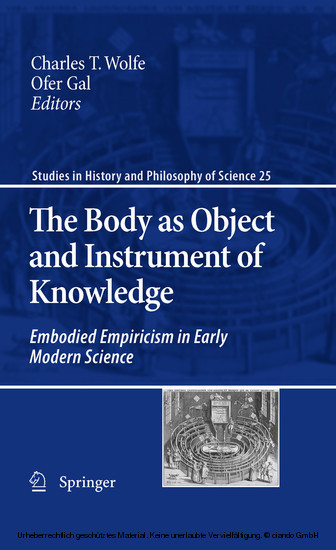Wolfe, Charles T. (Hrsg.)
Gal, Ofer (Hrsg.)
The Body as Object and Instrument of Knowledge
Embodied Empiricism in Early Modern Science

Beschreibung
It was in 1660s England, according to the received view, in the Royal Society of London, that science acquired the form of empirical enquiry we recognize as our own: an open, collaborative experimental practice, mediated by specially-designed instruments, supported by civil discourse, stressing accuracy and replicability. Guided by the philosophy of Francis Bacon, by Protestant ideas of this worldly benevolence, by gentlemanly codes of decorum and by a dominant interest in mechanics and the mechanical structure of the universe, the members of the Royal Society created a novel experimental practice that superseded former modes of empirical inquiry, from Aristotelian observations to alchemical experimentation.
Produktdetails
| ISBN/GTIN | 978-90-481-3686-5 |
|---|---|
| Seitenzahl | 350 S. |
| Kopierschutz | mit Wasserzeichen |
| Dateigröße | 5159 Kbytes |

